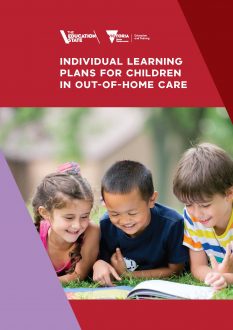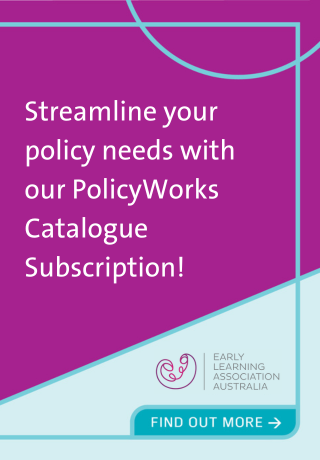18 SepIndividual learning plans (ILPs) for children placed in out-of-home care
Early Childhood Education and Care (ECEC) educators are reminded that the Victorian Department of Education and Training has excellent resources to support educators in developing individual learning plans (ILPs) for children placed in out-of-home care (OoHC).
The resource, Individual Learning Plans for Children in Out-of-Home Care, provides contextual information and supports the implementation of the Early Childhood Agreement for Children in Out-of-Home Care.
Why use the ILP resource?
Children in OoHC are likely to have experienced trauma and will require additional considerations that educators need to factor into their usual planning. Explicit practice advice linked to the NQS and guiding questions for each of VELDYF planning cycle stages are provided, making this a practical and easy to use resource. Strategies to support educators to use a trauma lens when developing an ILP are outlined, as well as the relationship with other important supporting documents, such as Looking After Children Framework and cultural support plans.
A printable version of this resource is available on the DET webpage here.
About the Agreement
The Early Childhood Agreement for Children in Out-of-Home Care describes the respective roles of organisations in supporting the learning, development, health and wellbeing of young children in out-of-home care, including through the transition from early learning to primary school.
Children in Out-of-Home Care (OOHC) come from a diverse range of backgrounds. Some of the most vulnerable include Aboriginal children, children and families from diverse cultural and linguistic backgrounds, and children with disabilities or developmental delays.
The provides shared guiding principles and clear responsibilities for supporting children in out-of-home care, including these three key groups of children. Access to early childhood services reduces the risk of children being vulnerable and prepares them for a positive start to school. By working together using the agreement, services make a positive difference to the outcomes of children in out-of-home care.





